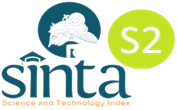Food Microbiology Collaboration in Biology Education to Support the Implementation of Sustainable Development Goals (SDGs)
DOI:
https://doi.org/10.33477/bs.v14i1.9172Abstract
Collaboration between food microbiology and biology education is an effort to support the Sustainable Development Goals (SDGs) in food security (SDG 2), good health (SDG 3) and quality education (SDG 4). Collaboration aims to improve food safety, microbiology quality, and its impact on human health. Problem-Based Learning and Project-Based Learning strategies, supported by information technology (IT) are efforts to support the SDGs. The use of e-learning platforms, laboratory practices, and interactive learning applications allow students to access the latest materials, data, and research in food and nutrition microbiology flexibly and effectively. This learning strategy, collaboration between microbiology, food, and nutrition in biology education can improve the quality of learning and produce graduates who are ready to contribute to achieving the SDGs, especially in the fields of nutrition, health and food.
Keywords: Nutritions, Food Microbiology, Biology Educations, SDGs
Downloads
Published
Issue
Section
License

This work is licensed under a Creative Commons Attribution-NonCommercial 4.0 International License.
Authors who publish with this journal agree to the following terms: Authors retain copyright and grant the journal right of first publication with the work simultaneously licensed under a Creative Commons Attribution License that allows others to share the work with an acknowledgement of the work's authorship and initial publication in this journal. Authors are able to enter into separate, additional contractual arrangements for the non-exclusive distribution of the journal's published version of the work (e.g., post it to an institutional repository or publish it in a book), with an acknowledgement of its initial publication in this journal. Authors are permitted and encouraged to post their work online (e.g., in institutional repositories or on their website) prior to and during the submission process, as it can lead to productive exchanges, as well as earlier and greater citation of published work.














